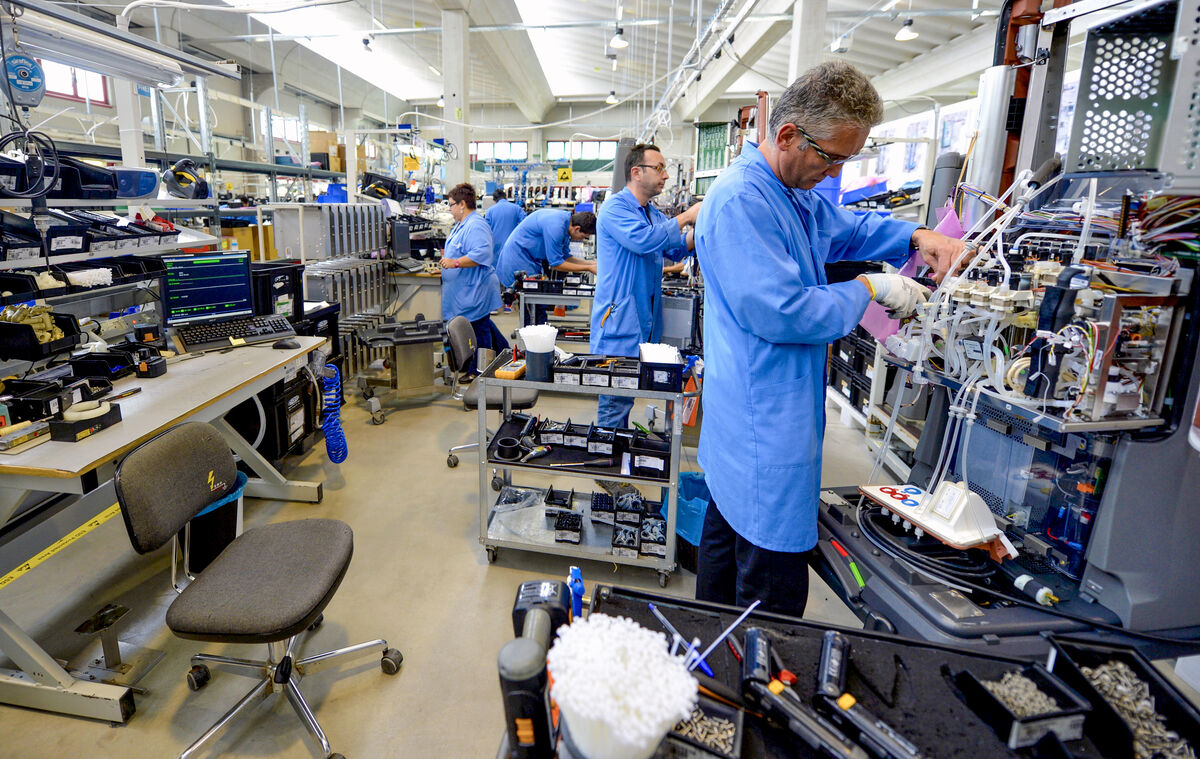Even though immigrants are often selected based on their qualifications in certain fields, their degrees may not be recognized by professional orders or the host country may find their training and education insufficient.
An immigrant is a person who settles in a foreign country (host country), temporarily or permanently, after leaving their country of origin (home country).
Professional orders protect the public by regulating access to professions as well as the practice of the profession to ensure that workers in the field are competent, honest and qualified. If a professional violates the rules of conduct, they lose their right to practise.
In Quebec, professional orders set the standards for recognizing degrees. They assess the relevance of an immigrant’s experience to determine whether they have the skills needed to work in Quebec. Degrees obtained abroad do not have the same value as those obtained in Quebec, because the training offered in Quebec meets the province’s standards. The opposite is also true. For example, a degree from Quebec does not meet Spain’s standards.
Even if all or part of an immigrant’s education is recognized, they will have to do bridging programs, internships or both. In the case of doctors, nurses, lawyers, psychologists and similar professions, immigrants must also apply for a licence to practise. This ensures that they have the skills to perform their job at the standards of the host country.
In 2017, 63% of immigrants had their degrees partially recognized by professional orders in Quebec. As a result, they had to take bridging programs and complete internships or, at the very least, apply for a licence to practise in their field.
A host country may decide that an immigrant’s degree and experience do not meet its standards. This means many immigrants have to go back to school or take a job that requires lower qualifications.

51.7% of immigrants in Italy are overqualified for their jobs. The rate of overqualified immigrant workers is 53.6% in Spain, 55% in Quebec, 60.7% in Greece and 74.5% in South Korea.
The recognition of prior learning is only determined by a professional order if the immigrant’s profession is regulated by an order. Otherwise, it is the employer’s responsibility to determine whether the immigrant’s experience and skills are sufficient.
If an immigrant worked in a factory in their home country, the employer decides if this person is qualified to work in their factory. Future employees may have to attend some initial training alongside the other factory workers, which is much shorter than the 16-month bridging program that foreign-trained pharmacists have to complete, for instance.
To sum it up, occupations that require a lot of schooling are more difficult for immigrants to practise in their new country.
Measures are implemented to help immigrants find employment that matches their training.
The first measure involves adopting a prior learning recognition system. This involves testing applicants to see if their experience has given them the necessary skills to work in their profession in the host country. Some experience and skills may not be recognized, making additional training and internships necessary to obtain the required skills for their occupation.
The prior learning recognition system evaluates the skills acquired as opposed to the institution from which the diploma was obtained. For example, a Harvard University graduate would have no problem getting hired anywhere in the world, but this is not the case for graduates of other universities.
Internationally standardized professional standards also help immigrants get their training recognized. Since each country has its own standards, it is more practical for countries to agree on the essential principles of a profession or trade. This allows educational institutions to gear their training towards these professional standards, to ensure their degrees will be recognized internationally.
An institution is an organization governed by rules and laws that plays a specific role in society. Its role may be political, social, economic, religious, etc.
To better understand what an institution is, you can watch the video What is… an institution?.
Professional standards establish the skills, knowledge, attitudes and abilities needed to perform a trade or profession.
Dietitians are responsible for assessing a person’s nutrition and choosing and implementing a strategy to change their diet as needed to maintain or improve their health.
Early childhood educators foster children’s development and guide their behaviour by providing children with daily experiences that support and promote their physical, linguistic, emotional, cognitive, social and creative development as well as their behaviour.
Estheticians provide facials and body treatments to improve physical appearance.
Teachers contribute to the intellectual growth and overall development of the personality of each of their students and foster their love of learning.
Industrial mechanics repair, install, modify and perform preventive maintenance on industrial equipment.
Anyone who fails to meet the professional standards of their trade or profession may lose their job or be banned from practising.
Some countries have agreements to make it easier to have prior learning recognized. These intergovernmental agreements promote labour mobility between signatory countries.
Several countries have intergovernmental agreements to promote labour mobility. The purpose of these agreements is to make it easier for immigrants to have their prior learning recognized so that they can work in another country. This makes it easier for workers to move between signatory countries.
These agreements benefit both parties: on one hand, countries can recruit skilled immigrants and on the other, immigrants are more likely to be able to practise their trade in countries other than their own. Below are examples of intergovernmental agreements that promote labour mobility.
In Canada, each province and territory has its own professional standards. This means that someone from Ontario and someone from Morocco must go through the same prior learning recognition to work in Quebec. To remove this burden from Canadians, the provincial and territorial governments signed an agreement in 1994. The objective of this agreement was to remove barriers to the movement of Canadian workers in regulated trades and professions, meaning professions that require licensing or registration, such as doctors, psychologists and engineers. This facilitated labour mobility between provinces and territories.
In 2008, Quebec and France signed an agreement to support labour mobility. The primary purpose of this agreement was to establish a common procedure for recognizing the professional qualifications of people working in a regulated profession or trade.
This agreement would not apply to a factory worker or a garbage collector, since these professions are not regulated. Some experts have indicated that it would be beneficial if this agreement could be extended beyond France to the entire European Union.

The agreement signed in 2008 between Quebec and France on the mutual recognition of professional qualifications makes it faster and easier to legally practise 81 professions, trades and functions in both territories.
The European Union (EU) is composed of 27 countries and aims to facilitate the free movement of goods, services, investments and labour between its member states. For example, a Spanish citizen can work in Portugal, or a German citizen can work in the Netherlands or Austria. In 2020, 17 million EU citizens lived and worked in an EU country different from their own. Around 1.4 million EU citizens also commute to another member state every day for work. The European Union is a very good example of labour mobility between countries.
Some countries have measures to help immigrants integrate into their new country.
Besides offering various resources such as language courses, some countries offer subsidies to companies to recruit immigrant labour. Consequently, many companies hire immigrants, which boosts the integration of immigrants. Employment is one of the best ways for immigrants to integrate.
In Quebec, companies can receive financial support to subsidize the salaries of immigrant workers (usually for 30 weeks), as well as the salary of an instructor and training costs.
Certain countries have measures that aim to benefit people who would be discriminated against. This is called affirmative action. Financial support, such as what is mentioned above, as well as quotas on immigrant workers in certain industries aim to bring greater equality.
-
Discrimination is the unequal or unfavourable treatment of people based on their ethnicity, name, gender, physical appearance, religion or membership in a group. They are then said to be a victim of discrimination.
-
Affirmative action refers to all policies and measures that favour certain groups that are usually discriminated against based on their social or ethnic origin, religion, gender, age, disability, etc.
The government may also decide to speed up the immigration process to better serve the company’s situation and needs. It can relax its rules on the recognition of professional qualifications.
Immigration is when a person settles in a foreign country (host country) temporarily or permanently.
The European Union (EU) has relaxed its rules on the recognition of professional qualifications. People can apply for the European professional card, which is no longer just offered to professionals with recognized professional qualifications, but also to professionals who meet all the conditions for providing services on a temporary and occasional basis.